
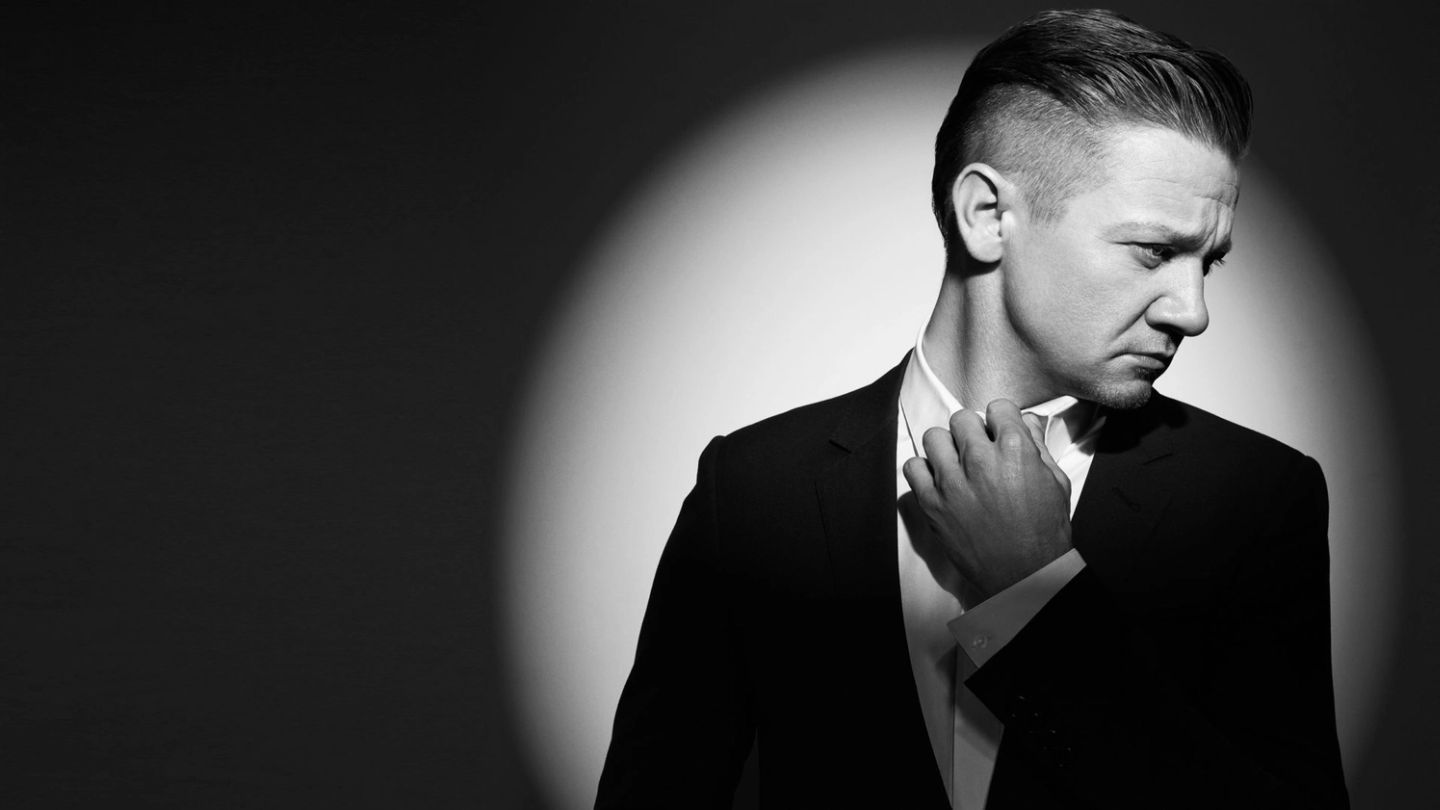
Is Jeremy Renner Hollywood’s last hero?
As he celebrates his 49th birthday, revisit our 2018 interview with the first man to stand up to Harvey Weinstein on injustice, awards season and how Hollywood has to change to survive
- Words: Jonathan Wells
- Photography: Eric Michael Roy
There’s something of the cowboy about Jeremy Renner. It could be his tendency to take on strong but silent roles. It might be the actor’s deep affinity with nature. Or, maybe, it’s because in the wake of the Weinstein scandal, Renner saddled up and rode back into Hollywood to reclaim what was rightfully his.
Today, Renner sits beside me — more sharp-suited than sharp-shooter — texting away with his trigger-fingers on the backlot of Universal Studios. We’re sitting outside a faux-saloon on Western Street, a custom-built frontier town set, and the actor looks oddly at home. He’s subdued, but that’s no surprise — it’s been a hell of a few months.
In August 2017, Renner’s film Wind River, was released by The Weinstein Company. Two months later, the Hollywood sex abuse scandal began to break. For Renner, his co-stars and the crew of the film, the revelations were appalling — not least because their neo-Western thriller, a film which at that time still bore the disgraced mogul’s name, dealt with the abuse of vulnerable women.
“There was a horrible irony,” exhales Renner, looking down at his feet. “It was horrible on every level. But I can’t complain about this negativity that has been attached to and now surrounds our film — because that’s just a personal thing. What’s really horrible is what’s happened to these women. It’s a travesty.”
The film, which tells the story of a hunter (Renner) teaming up with an FBI agent (Elizabeth Olsen) to solve the rape and murder of an indigenous woman on an Indian Reservation in Wyoming, was the first to successfully strip Harvey Weinstein’s name from its credits — after the cast and crew boldly bought it back from the production company. It was a move unprecedented in Hollywood but, as Renner explains, the whole industry is still reeling from the revelations. These are uncharted waters; uncertain times.
“I don’t think any of us can speak about how it’s affected us because it’s still unfolding. Initially, of course, they were just awful things to hear,” he says, shaking his head. “But, when you think about the courage that comes from the other side, the bravery that these women have had to stand up and make themselves heard, that’s almost heartening.
“I always try to take something positive, even out of the worst things,” says Renner, looking up. “And, in this case, it’s got to be this courage. The courage women have had to stand up, and not wallow or be taken hold of by all this awful news. They knew that they couldn’t start a crusade alone, but they built one anyway — one brick at a time. And that shows great strength — a strength that I see it as my place to encourage.”
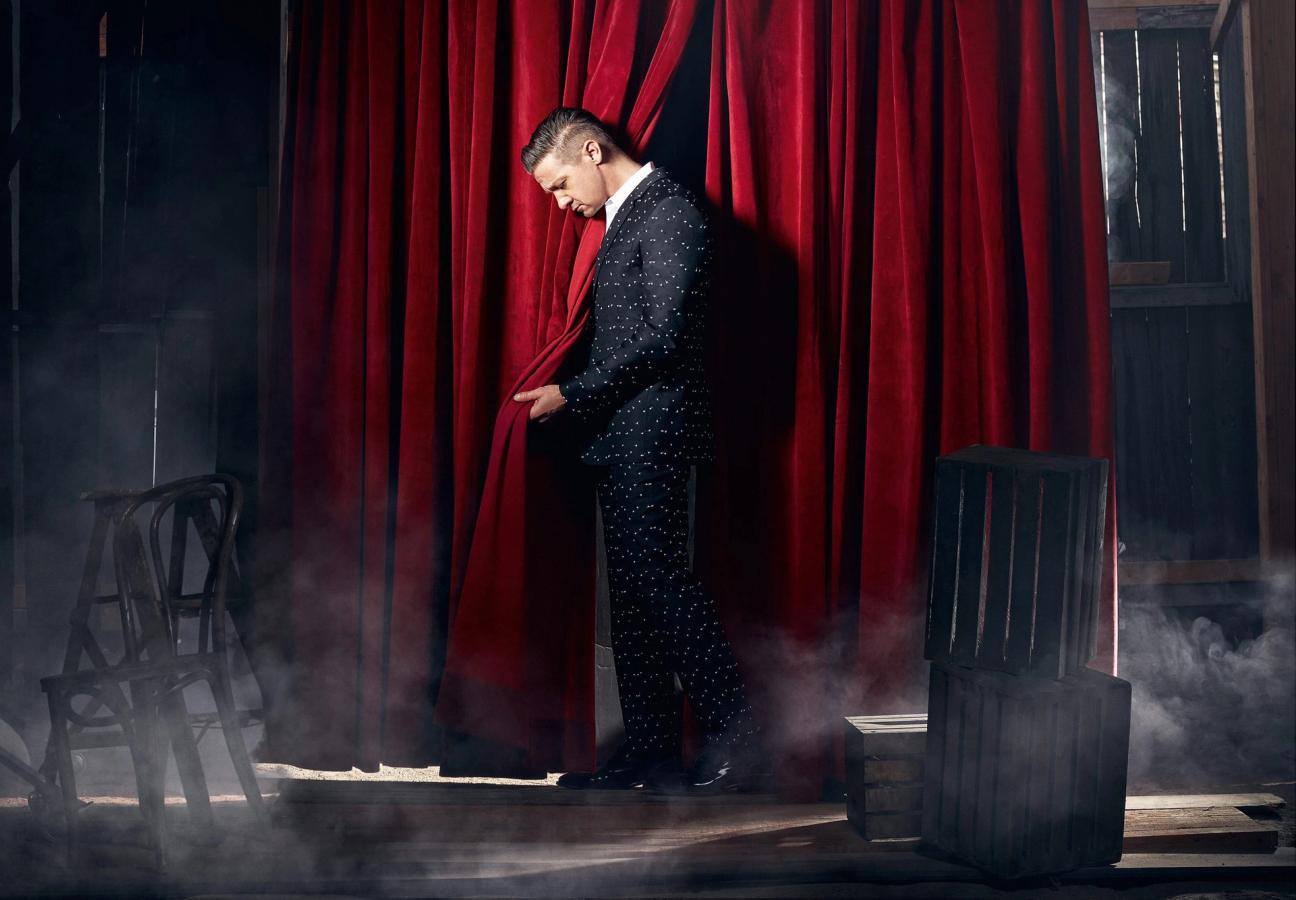
Renner is no stranger to a good cause. From fighting to end the illegal trade of wildlife to his work with UNICEF, the Hollywood actor is a hero both on and off screen. But, in ensuring that the Weinstein brothers never see a penny of future profits (their cut was donated to the National Indigenous Women’s Resource Center), Renner believes he has fought his most important fight to date.
“I’m working doubly hard to get people to go see this movie now,” says the actor, “because the themes in Wind River were essentially playing out behind the scenes. And the fact that we’ve managed to capture the film back from the very thing we were trying to shed light on — I’m very proud of that.”
Affecting real change, Renner says, has always been important to him — and even more so in the current climate. Wind River, with its stark honesty and timely release has been transformed by Renner into a call to action.
“This movie is screaming and screaming,” implores Renner, his hands outstretched and clenched — as if he’s shaking an invisible studio exec by the lapels. “It’s screaming about the things that have happened around it, and it’s screaming for action to be taken. And that’s what I value, that’s how I live my life. Speak less. Do more.
"I always try to take something positive, even out of the worst things..."
“Not only that,” adds the actor, turning in his chair. “I’ve also been able to review who I am, and what I’m about. And that’s a wonderful gift, to hold up a mirror to yourself to see your true values, and who you really are.”
In the months that followed the first allegations, actors across Hollywood examined their own behaviour more closely than ever. And, although he stands on the right side of the wronged, Renner has not spared himself the same level of rigorous self-scrutiny.
“I’m entirely defined by my own mistakes,” the actor shrugs. “All the failures I’ve had and the mistakes I’ve made. And that’s why I feel blessed to have been a part of this process — part of a film that has not only been well-received creatively, but also made real changes.
“Look,” Renner continues, kicking his heels out onto the boardwalk and holding up his hands, “I’m not going to sit here and pretend I did this movie just because I wanted to shed light on the mistreatment of these women. I did it because of the scriptwriting and the director. I did it because of the flaws of the characters, and how each character has this strength and unflappability to them, especially the women. I did it because of the landscape I’d be working in. There were lots of reasons.”
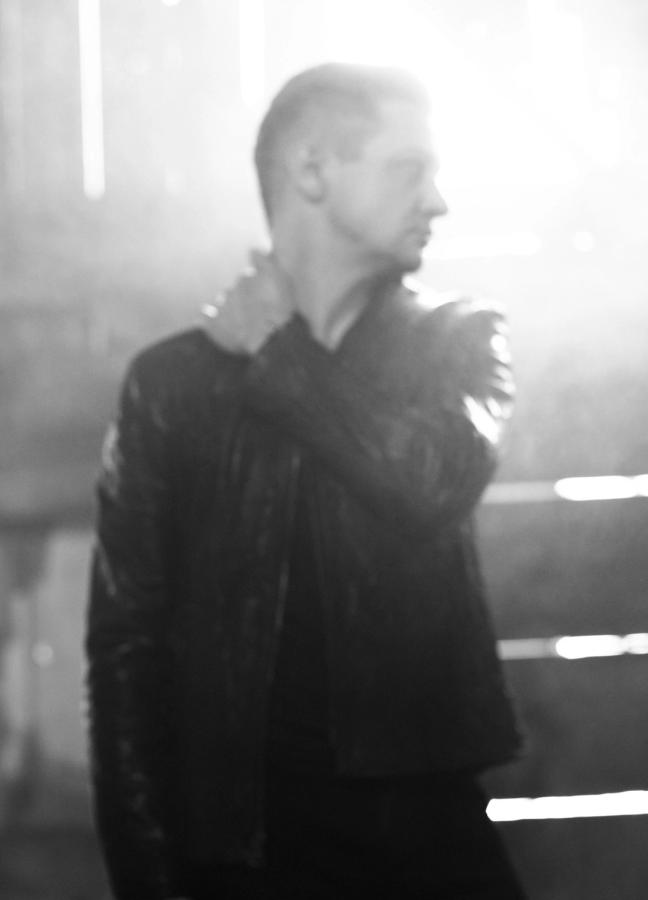
The film itself is a work of art. Sweeping snowy vistas, as deadly as they are beautiful, could not be further from the dirty buzz of Hollywood. It’s no surprise Renner was drawn to the film for its beauty: he spent many of his younger years living in Lake Tahoe. The actor even maintains a house there — a haven he presumably prefers amidst the current madness.
“Oh, yeah,” Renner nods. “Don’t get me wrong, I wouldn’t want to be out there all the time. I need more stimulation than that. But I think it’s definitely important to strike a balance between wilderness and city life. I have a huge love of nature: the trees, clean air, the stars. It’s also nice to be anonymous. Bears and squirrels don’t give a shit who I am. You know what I mean? They never want a selfie!”
Given Renner’s ubiquity in the world of modern moviemaking, it’s almost a surprise that word hasn’t spread to the woods. The actor may keep his personal life quieter than many A-listers but, professionally, Renner’s work runs the gamut, from considered character studies to franchise blockbusters.
Over a decade ago, the actor starred in The Hurt Locker — a role which garnered him his first Oscar nomination and pushed him firmly into the Hollywood spotlight. 38-years-old at the time, the actor coped handsomely with his meteoric rise, even when Tom Cruise’s Mission: Impossible movies, the Jason Bourne saga and the unstoppable Avengers franchise came knocking at his door.
“I’ve been very blessed with the opportunity to be involved in those franchises,” says Renner, “because they kind of help my smaller films. The Hurt Locker, which was a small film, got me all those big franchises to begin with — but the big franchises then allowed financiers to throw money at stories that may never have been told, like Wind River.
“That said,” he adds, breaking cowboyish character with one of the first smiles of the interview, “the catering tends to be better on a big film. Ultimately, though, it’s the same. Truth is truth. Entertainment is entertainment. If there’s some element of truth to it, it works.”
It sounds pretty rich coming from an Avenger. But, super-friends aside, Renner’s roles do have an identifiable through-line of practicality and real-world grounding. This seems to be a prerequisite for the actor.
“Even Hawkeye, the superhero I play in The Avengers, doesn’t have any superpowers,” Renner explains. “He’s just got a really high skillset, of archery. And that’s something I can understand. If they’d offered me Thor, I wouldn’t have had a clue. [Chris] Hemsworth does that so well, but I couldn’t get a grasp on that. I need a practicality to my characters.
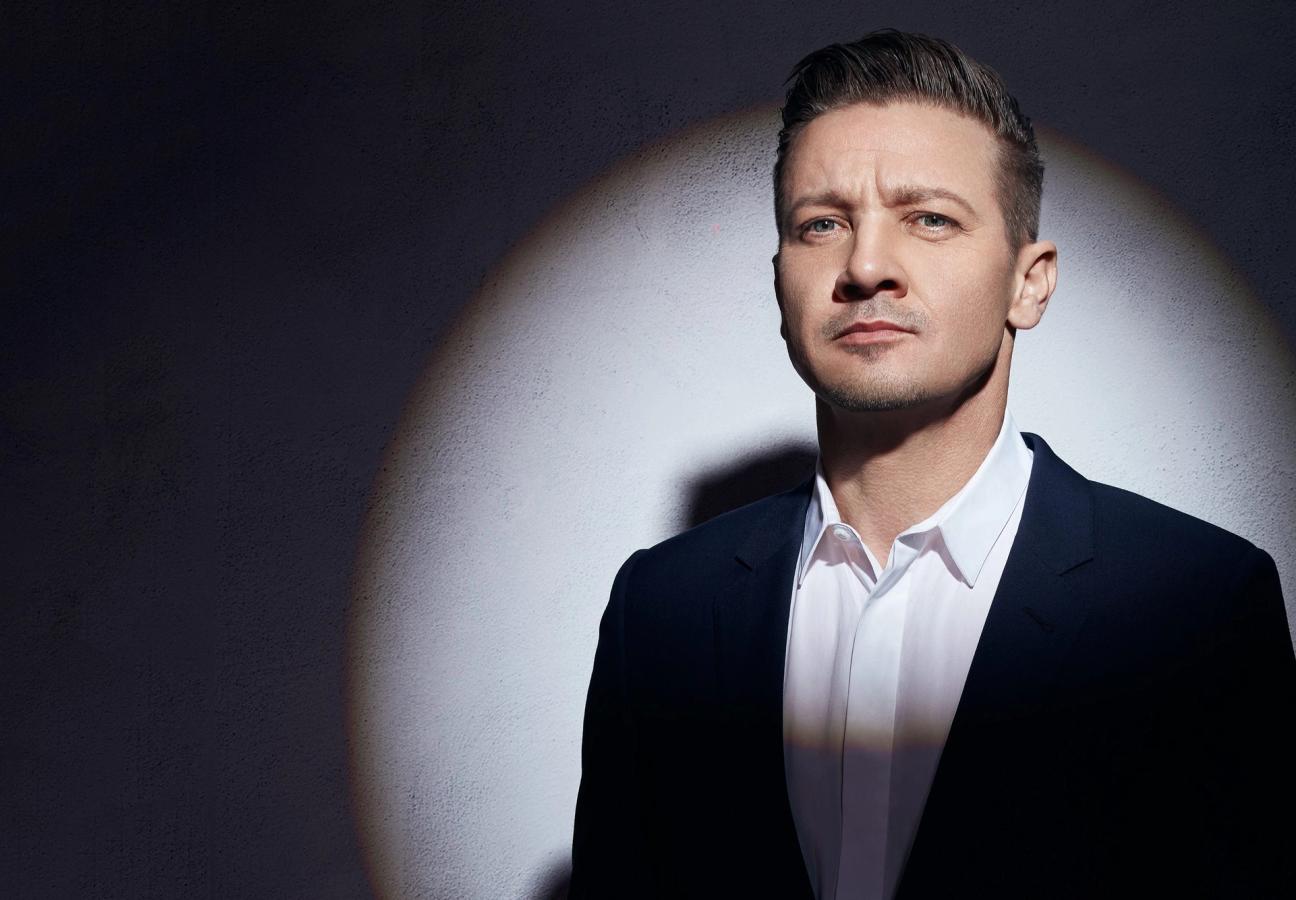
“There’s a certain sarcasm to quite a few of my characters, too. And that’s like me as well. I don’t take myself too seriously,” he smiles, “but I take what I do seriously. I do 99 percent of my own stunts in everything, even the really tough action movies.”
In the past, Renner has mastered skills from his Avengers archery to Muay Thai and Filipino martial art Arnis in preparation for his onscreen appearances. But, he reveals, it’s his parents he must thank for this application.
“I was very athletic growing up,” says the actor. “My parents put so much stuff in front of me as a kid that I became a competitor against myself, if that makes sense. I found that I could learn skills pretty quickly. People often ask me why it seems I can do loads of things really well. But that’s not the case! I just don’t do the stuff I’m bad at. And there’s a lot of that, believe me…”
Among the many hidden talents of Jeremy Renner — the most startling of which may be his gift for house-flipping (27, at last count) — he is most passionate about his music. A singer-songwriter, guitarist, pianist and drummer, Renner was recently given the opportunity to play on the soundtrack of a film. He jumped at the chance.
“It began when I signed on to play a voice in an animated movie,” Renner smiles. “That’s pretty much all I watch with a four-year-old daughter, so I thought it’d be cool to do something she’d actually see. But then I ended up performing nearly the whole soundtrack. It’s great that music is starting to complement and support what I do in everyday life.”
But playing an anthropomorphic arctic fox and singing on a soundtrack is a huge departure from Renner’s usual roles. “True,” he laughs. “So will it do well widely? I don’t really care either way. I loved it, my daughter’s involved — and that’s fantastic!”
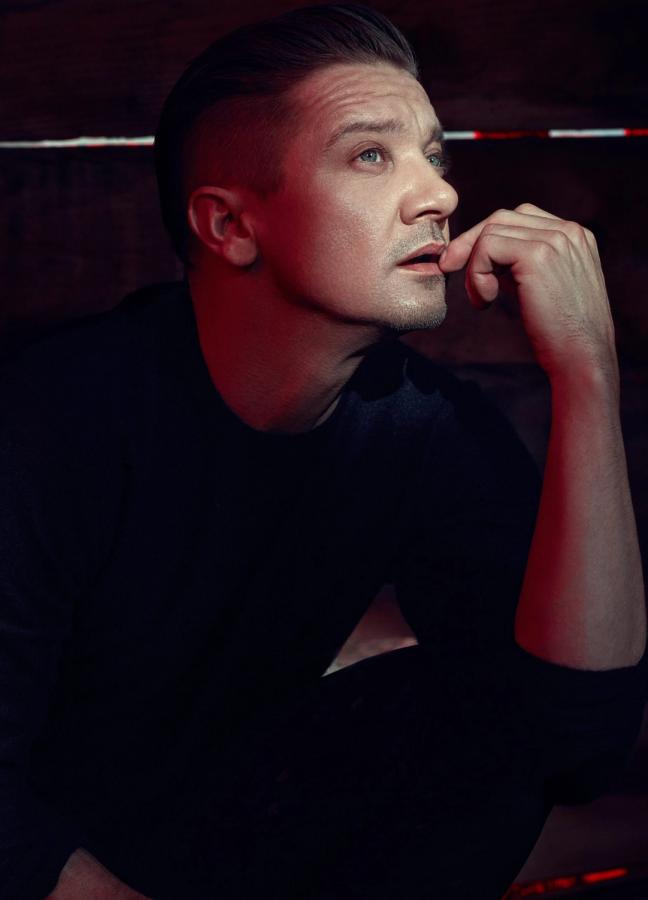
Renner, like most men, has seen his life change with fatherhood. “She’s my number one priority,” he says. But, even before he had a child of his own, the actor was aware of the impact his roles had on younger viewers.
“It’s hard to think of the accountability of yourself as a role model,” Renner considers. “But I’ve found it important for the character to be good. That way, when the kids grow up and forget the flash and the action of the films, those values will still stay with them. Being able to impress that upon them, that’s what I think is really wonderful about playing a hero.”
Renner purports to only “play” a hero, but many would argue his decency extends beyond the celluloid. The actor’s entire family is descending on California tomorrow for his grandmother’s 90th birthday, and the actor tells me that his house is currently filled with distant nieces, nephews and relatives who can’t seem to differentiate “Uncle Jeremy” from the heroes he plays.
They’re not the only ones. Renner’s everyday actions have earned him a reputation as a ‘Mr. Nice Guy’ around Hollywood. He even took his mother along to the Oscars when he was first nominated, so she could share the experience.
"There’s a sarcasm to my characters. And that’s like me. I don’t take myself too seriously..."
This year, however, as the awards season rolls around once more, there is still a cloud over Los Angeles. Suspicion still circles many of the studios and some films have been caught in the crossfire and missed out on consideration altogether. Renner has shrugged this injustice off — how can he be upset about losing a potential third Oscar nomination amidst the current chaos? But has Hollywood really changed as much as we think?
“Yes it’s different,” says Renner, downing his coffee and shifting slightly back into cowboy mode. “But is it different because of what’s happening in Hollywood, or is it different because I’m different? There are a lot of reasons it feels different.
“There’s no glitter in the awards season, it seems, this time around — no glamour and no awe of people you come across. I don’t want to say it’s not joyous, because it is, but what it represents in the current climate with all the allegations coming out, it’s changed things.”
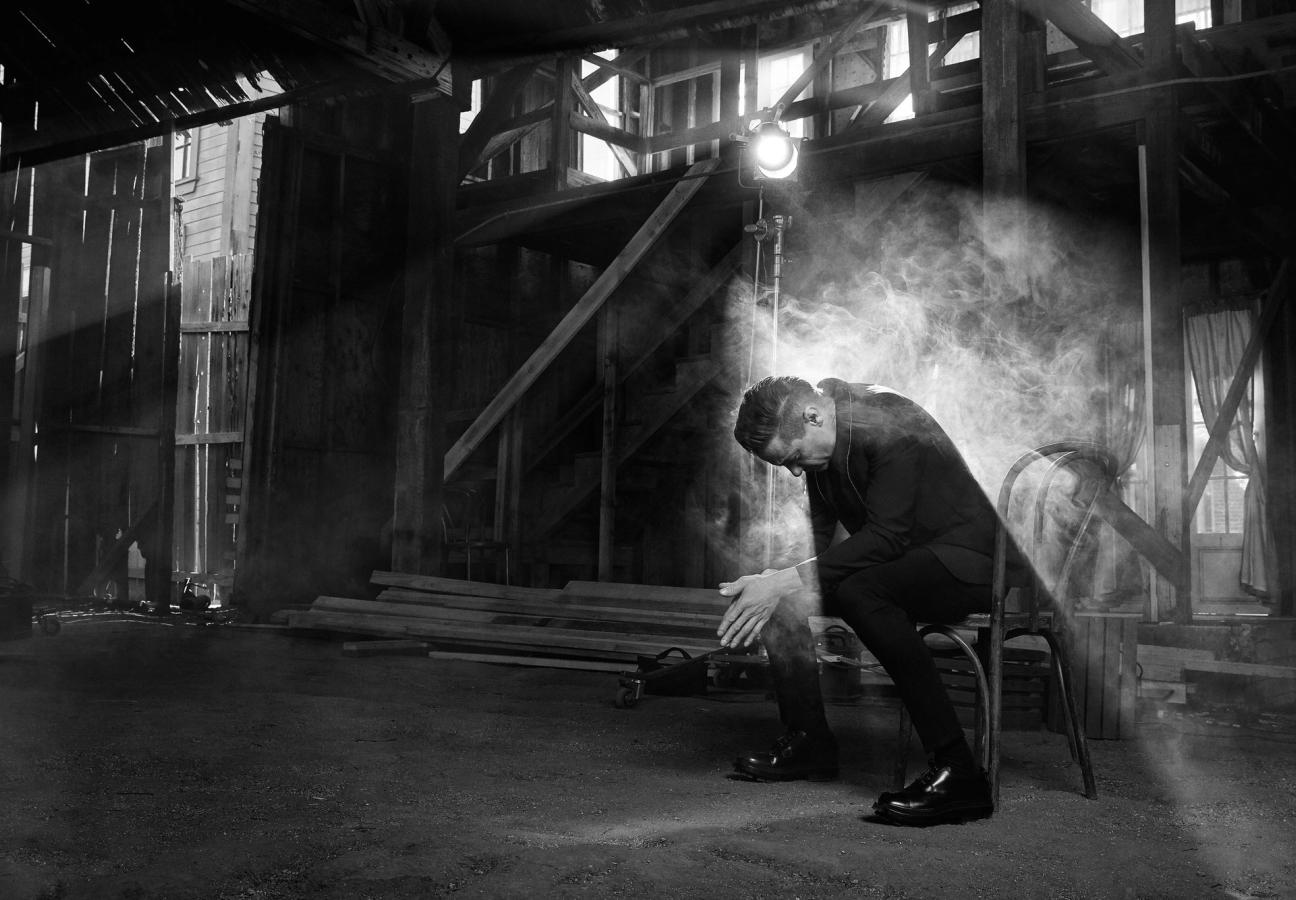
Suddenly, Renner chokes up and turns away — before gathering himself with a long breath and continuing. “I got word, while we were shooting today, of something that happened to my goddaughter. It’s just come out in the press. And now, more than ever, I feel as though I have a duty to speak, to shed light on these atrocities. You wrong someone now, you mess with a woman, and I’m going to be in your face. Probably not even in your face, I’ll be behind you, choking you out. I’m going to have a big problem with you.
“Because I’ve found out some awful things, and this film, the story itself and the process of reclaiming it from The Weinstein Company, has given me a way to take action and speak about these issues in a way that I might not have been able to before. There’s a gravitas now involved with this film that I’ve never had when discussing a performance. And this performance has now become about how I want to be viewed as a man.”
A cowboy, then, may be the wrong way to describe Renner. He’s undeniably got the steel, the fortitude and the dependability needed to walk this western studio street. But he’s also ferociously in touch with his emotions, and humble to the point of self-deprecation. As an actor, he embodies a new breed of leading man, and is ushering in a new age of heroism for Hollywood.
“At the end of the day,” Renner reasons, standing up and stretching out, “this movie, that we’ve managed to take back from Weinstein, is just a story made up in Hollywood. But, at the same time, there’s never been something so real.”
And, with that sign off, Hollywood’s last hero scoops up his phone and strolls calmly off past the saloon — looking less and less like a cowboy with every step. Because even here, on the set of old-school shoot-‘em-ups, he’s not afraid to talk feelings. He’s undeniably strong, but never one to stay silent. And, although he can channel the reserved charm and cowboy cool of Clint Eastwood, he’s a far cry from the Dollars Trilogy. This man has a name — and it’s Jeremy Renner.
Want more from Hollywood? Here’s an essay on Willem Dafoe’s face…
Join the Gentleman’s Journal Clubhouse here.


